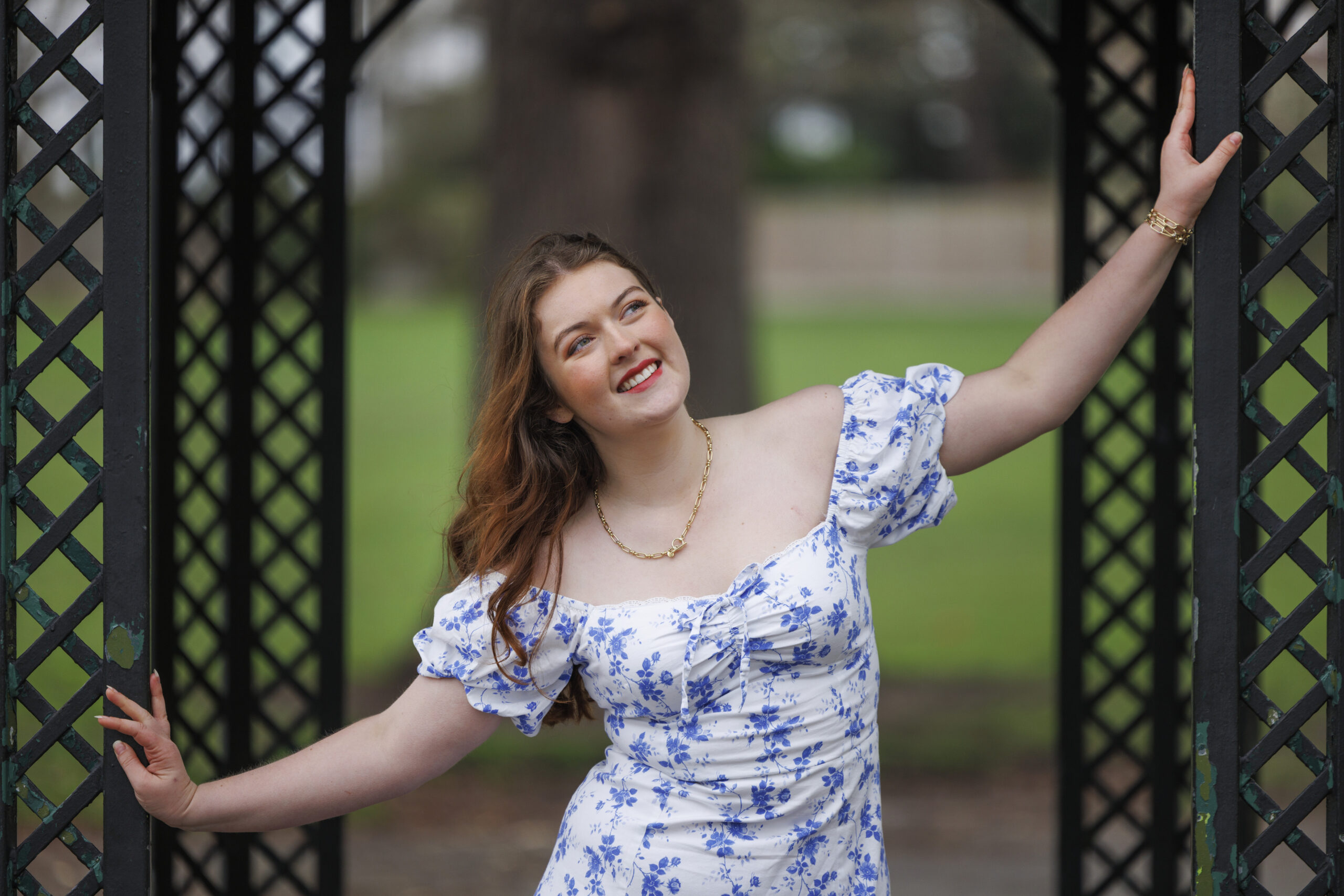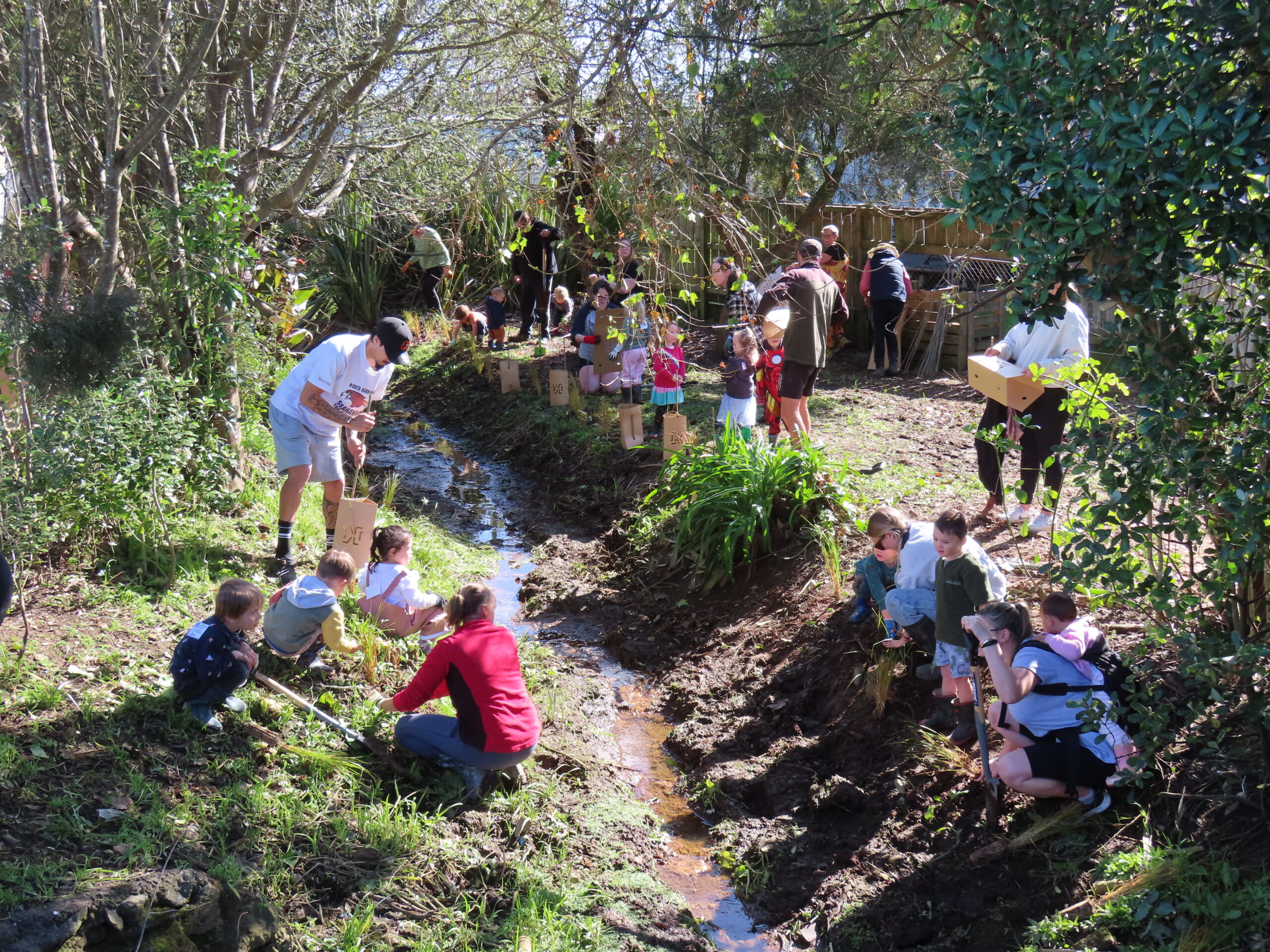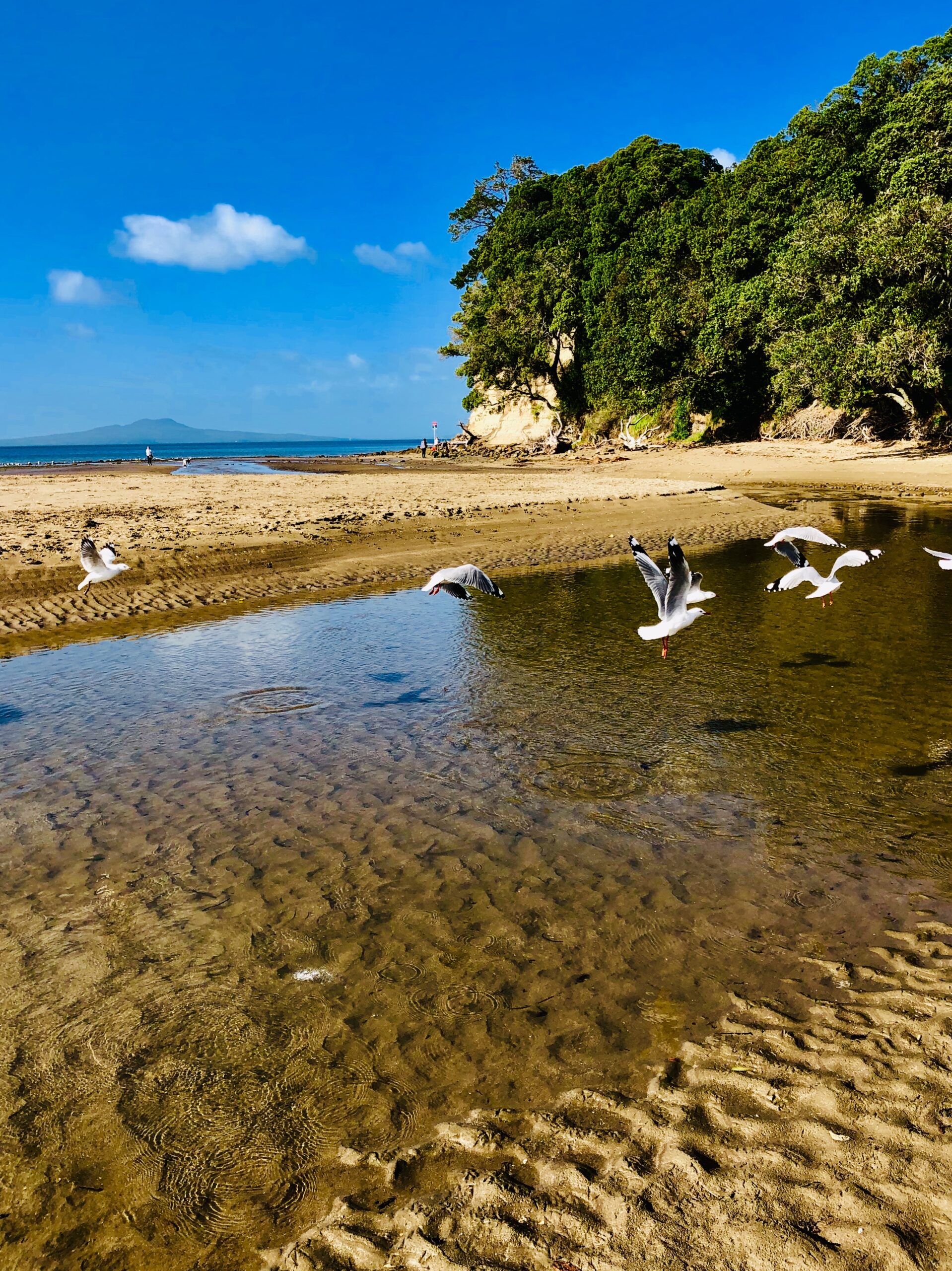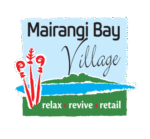Shock and disappointment as government permits commercial fishing in high protection zones.
by Lizzie Brandon
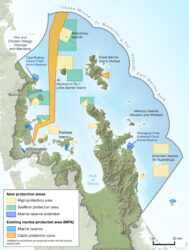
Revitalising the Hauraki Gulf marine protection areas | Supplied by DOC
Cabinet recently agreed to pass the Hauraki Gulf /Tīkapa Moana Marine Protection Bill into law, thus creating 12 new high protection areas, five new seafloor protection areas and two extensions to existing marine reserves.
“This is simply fantastic news,” said Environmental Defence Society policy director Raewyn Peart. “It’s been a long time coming but wonderful to be finally getting to the finish line.
“As well as creating the new marine protected area network, the government has committed to undertaking monitoring of the areas, with funding to be sourced from the International Visitor Levy. This will enable the application of adaptive management so we can bring these places back to health as soon as possible.”
However, in a surprise amendment, commercial ring-net fishing will be allowed in two high protection areas. The World Wide Fund for Nature (WWF) New Zealand branded the government a “disgrace” for pushing through these last-minute changes.
The organisation’s CEO, Dr Kayla Kingdon-Bebb, says the news is a “devastating blow for all those who’ve worked to revive the Hauraki Gulf /Tīkapa Moana and protect it for future generations”.
“So many Aucklanders, from all walks of life, have spent more than a decade creating a plan to restore the health and mauri of Tīkapa Moana, our country’s most widely used coastal area and a biodiversity hotspot on the doorstep of our largest city.
“To have these last-minute changes rammed through as a result of sleazy, backdoor lobbying – which our Oceans and Fisheries Minister was willing to entertain – is a complete and utter disgrace.
“It’s a slap in the face for all those who’ve worked so hard to protect this special place, another blow for marine ecosystems in the Gulf already on the brink of collapse – and frankly, it’s a complete betrayal of all Aucklanders.”
WWF-New Zealand is urging people to sign an open letter to Prime Minister Christopher Luxon asking him to reverse this decision.
“Honestly, I doubt the prime minister has a clear understanding of what he’s just signed on to, or the resistance he’s going to see from Kiwis in Auckland and around the country. I encourage everyone who cares for the Hauraki Gulf – and for our ocean more generally – to urge him to rethink this bizarre and unconscionable decision,” says Dr Kingdon-Bebb.
WWF-New Zealand says that overfishing, habitat loss, pollution, sedimentation, and the effects of poorly planned urban development have led to a 57 per cent decline in key fish stocks in the Hauraki Gulf, a 67 per cent decline in seabirds, and a 97 per cent decline in whales and dolphins. “Crayfish populations and scallop populations are now functionally extinct in some areas.
“The Hauraki Gulf Marine Protection Bill was a critical last chance to support the Hauraki Gulf to recover and thrive for future generations.
“Ring-netting is also indiscriminate; while targeting small bait fish, other species like seabirds, rays, and other fish species are often ensnared in these large nets and killed. Our threatened species are supposed to be given refuge in the new high protection areas, which are deliberately designed to protect critical biodiversity. It’s a travesty that enabling commercial fishing in these places would be given the green light.”
‘Conservation is just an excuse to exclude public fishing’
Public fishing interests’ group LegaSea has also raised serious concerns about the amended bill, saying that tripling the area where public fishing is excluded within the Hauraki Gulf Marine Park, while permitting Māori customary and commercial fishing is a “gross insult” to everyone who has worked hard to conserve fish over the past few decades.
“The last-minute change to the Hauraki Gulf Marine Protection Bill to allow commercial fishing to continue just demonstrates again what the public are up against when trying to protect their interests in taking a kid fishing,” says LegaSea project lead Sam Woolford.
“It’s bizarre to have a Marine Park that was set aside 24 years ago to benefit the people of the Gulf, and now we have officials and others colluding to deny us access to our food basket in the middle of a cost-of-living crisis.”
A decision that ‘doesn’t stack up’
In an email to Te Ao Māori News, the Minister of Conservation’s office defended the decision. “We have allowed the continuance of a small amount of commercial fishing that provides people in the South Auckland community with a source of affordable fish. This helps people facing a cost-of-living crisis, many of which don’t have the ability to access this fishery.”
However, this reasoning has attracted heavy criticism from iwi and advocacy groups, who say it just doesn’t stack up.
Ngāi Tai ki Tamaki’s island, Motutapu, is one of two areas where fishing will be permitted. Speaking to Te Ao Māori News in October, Ngāi Tai ki Tāmaki te kaiurungi chief executive Jada MacFie said: “To claim that this decision has been made in response to the impact of cost-of-living increases for Māori and Pacific whānau, and then specifically for South Auckland, as a justification for allowing commercial enterprise in this area, it’s weak.
“And it’s the first we’ve heard of that, so I would hope that that claim can be backed up by the MPI’s fish serve data.”
“If feeding South Auckland is a priority, there are plenty of alternative ways to do it other than having to fish inside a high protected area,” Sam Woolford agrees.
Do you think commercial fishing should be permitted in high protection zones of the Hauraki Gulf?
If not, you may wish to sign the WWF-NZ’s open letter to the prime minister: only.one/act/protect-hauraki-gulf
To read more about the Minister of Conservation’s decision, go to teaonews.co.nz/2024/10/17/iwi-leaders-slam-potakas-weak-justification-for-continued-commercial-fishing-of-hauraki-protected-areas
LegaSea was established by the New Zealand Sport Fishing Council in 2012 to elevate public awareness of the issues that affect recreational fishers.
It is a non-profit organisation dedicated to restoring the abundance, biodiversity and health of New Zealand’s marine environment.
For more information: legasea.co.nz

